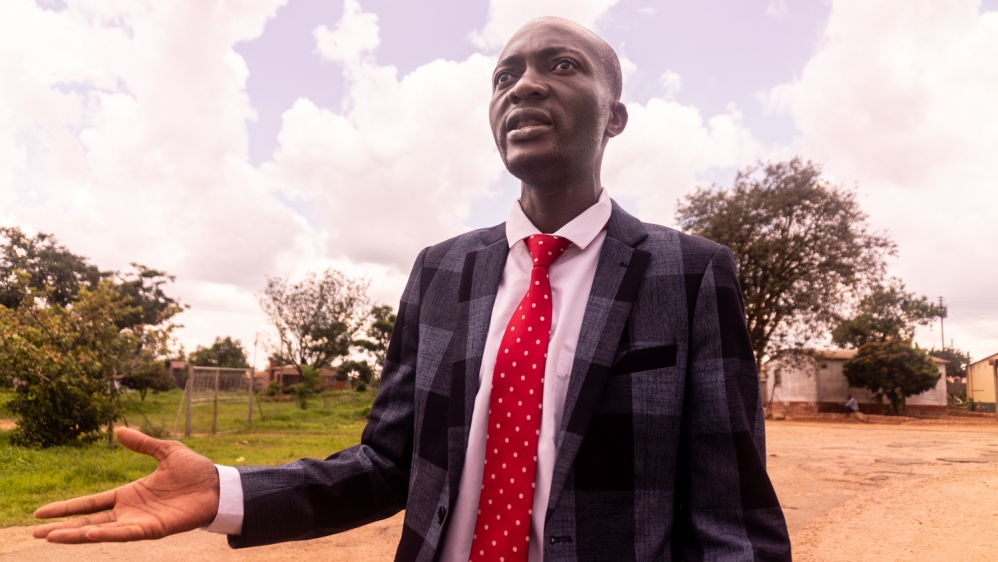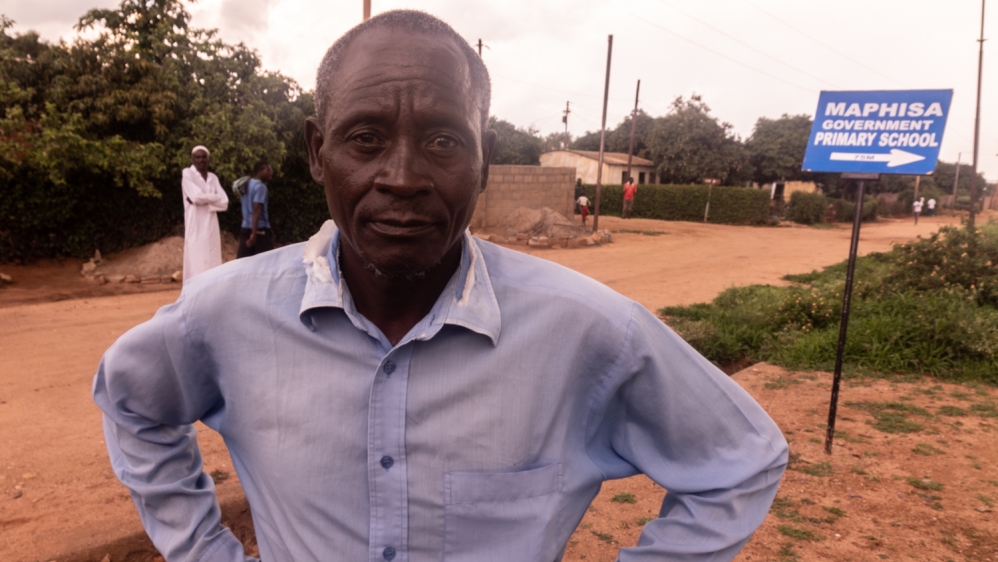
Bulawayo, Zimbabwe – Police in Zimbabwe have arrested a prominent protest leader, Evan Mawarire, as part of a widening security crackdown on protesters following violent clashes and incidences of looting.
Mawarire, an activist pastor, had called for a three-day work stayaway to protest a hike in fuel prices that citizens fear could push the country back to the brink of economic collapse.
Clashes between protestors and the security forces continued in Zimbabwe‘s second city Bulawayo on the third day of national shutdown demonstrations.
This is the longest running mass action in more than a decade since labour unions and opposition movements protested against the then President Robert Mugabe.
Mawarire was charged with inciting violence and attempted subversion of the state in 2016, when he called for a day-long shutdown against the policies of Mugabe government.
Mugabe was forced out in a de facto military coup in November 2017 that followed mass people’s protests.
President Emmerson Mnangagwa succeeded him, but instead of a new era of freedom that the new leader had promised at his inauguration, he has allowed security clampdown on protesters.
Mawarire is yet to be charged but stands accused of inciting violence along with nearly 60 out of 200 protesters arrested in the past three days. The government blames civil society activists and the opposition of being responsible for the nationwide demonstrations.
At least five people have reportedly been killed as a result of the brutal crackdown, that has brought back the memory of the mass protests that ended President Mugabe’s four-decade rule.
Looting has ceased
In Bulawayo’s western suburbs, tension remained high as security forces continued their crackdown on suspected shop looters, protesters and citizens on Wednesday.
In the suburb of Sizinda, looting has ceased, but a standoff between the people and the army continues. Military trucks were seen patrolling the neighbourhood forcing residents to clear makeshift barricades and clean the streets with their bare hands.
After cleaning, the youths re-erected the stone barricades, but the armed troops returned and lined themselves up along the main highway.
Residents and some elderly people accused soldiers of beating civilians and conducting house raids.
Mafios Mumpuri, 69, a supermarket cleaner, told Al Jazeera he was accused of erecting stone and tyre barricades.
“The soldiers told me to remove the stones because I was one of those who put them on the street. After I pushed them off, they beat me with a belt and told me to go home.
“I am pained by what they did to me, how can we expect our country to be free if they make us do things like this,” he said.
Josphat Ngulube, an activist and independent politician, said he witnessed several beatings during security raids. Ngulube said he had taken at least four people to hospital in Sizinda.
He urged the government to listen to the people and end the violence.
“The demonstration has an impact because people are no longer listening to the government, they are not going to work because no one has confidence in the government.
“They need to engage with the people, they can’t kill us all,” he told Al Jazeera.
According to the Zimbabwe Association of Doctors for Human Rights (ZADHR), over 100 people have been admitted to hospitals across the African nation, mostly with gunshot wounds.
 |
| Mumpuri alleges he was forced to remove stones barricading the streets and then beaten up by the army [Tendai Marima/Al Jazeera] |
‘Necessary for change’
Opposition leader Nelson Chamisa, who narrowly lost a disputed election against Mnangagwa, visited the wounded in hospital in the capital, Harare. In a statement issued by the opposition MDC Alliance, the movement urged the Mnangagwa government to end the “siege” on citizens and recall the military.
“You do not have to do this and it does not have to be this way. Zimbabwe can be a prosperous nation, prosperity brings about peace, not guns and murder…
“Order the armed forces back to the barracks, allow peaceful protests and do not prevent a process on national dialogue,” the statement read.
Listing five demands, Chamisa appealed to the government to consider the far-reaching impact of its crackdown on citizen’s rights and urged it to work towards resolving the economic crisis.
On Wednesday, internet was partially restored in major urban centres after access was cut for more than 30 hours.
Adding to the woes of ordinary citizens, shops and fuel stations have remained closed during the stayway. As a result a black market has emerged with basic goods being sold at exorbitant prices.
A loaf of bread which normally sells for $1.40, is being sold for $4, while a litre of fuel costs $3, more than three times the normal price.
The hike of fuel prices by nearly 150 percent is the source of discontent as it has a significant negative impact on the broader state of the economy and the average citizen’s cost of living.
Despite the steep black market prices, shop looting and the state crackdown, many Zimbabweans blame the government for the crisis and still hope the stayaway action will not only find a way to fix the economy, but also result in a change in the rule of Mugabe’s increasingly unpopular successor.
In a bid to win back the nation’s support, Mnangagwa, who is currently in Russia, posted a message on his Twitter account despite the social media blockout.
“I understand the pain and frustration that many of you are feeling. Resolving Zimbabwe’s economic challenges is a monumental task, and while it may not always feel that way, we are moving in the right direction. We will get there,” he said.
Julia Banda is unconvinced and unmoved by the President’s Twitter post.
The 83-year-old, who lived through Zimbabwe’s 1970s liberation struggle and Mugabe’s rule, told Al Jazeera that the protests are necessary for change.
 |
| Activist Ngulube has carried several wounded protesters to hospitals [Tendai Marima/Al Jazeera] |












